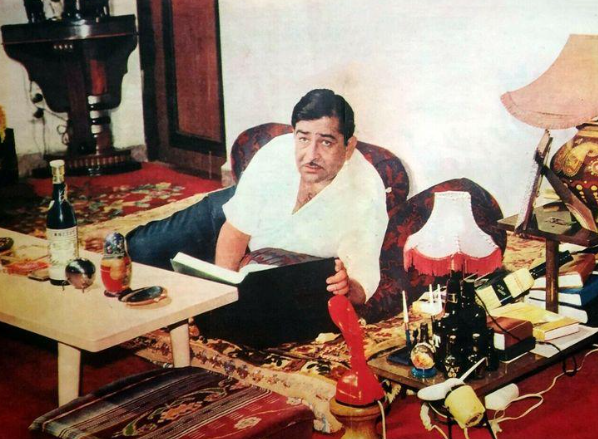
“100 Years of Raj Kapoor reminds us of 100 years of Indian Cinema. As we are heading towards 2047, we recall films like Neel Kamal that were released in 1947,” said Prime Minister Narendra Modi during a chat with the Kapoor family to celebrate the centenary year of the legendary actor-filmmaker Raj Kapoor. Remembering the showman of the industry, the Prime Minister wrote, “Today, we mark the 100th birth anniversary of the legendary Raj Kapoor, a visionary filmmaker, actor and the eternal showman!” His genius transcended generations, leaving an indelible mark on Indian and global cinema. PVR and Film Heritage Foundation are organising the RK film festival to honour the actor-filmmaker’s legacy. Spanning 101 cinemas across 34 cities from December 13 to 15, the festival is one of the most extensive retrospectives ever dedicated to Raj Kapoor’s filmmaking. Born on 14th December 1924, Raj Kapoor, left his stamp on the industry with his exceptional talent as an actor, director and producer. He was a young boy when he embarked on the world of films. Born to the first superstar of Indian theatre and filmmaker Prithviraj Kapoor, Ranbir Raj Kapoor, his full name, was introduced to theatre at a very early age. His early days in industry were marked by struggle and determination. He joined the film world at the early age of 11 in the film Inquilab (1935) but gained stardom at 21 from the film Neel Kamal (1947) starring opposite Madhubala. Raj Kapoor never got the benefit of his father's status, rather he had to work hard to make a name for himself. One of his hardest struggles was to start in an industry that was defined by senior talented actors. Many of his early movies including Aag in 1948 which he directed reflected his determination to create meaningful cinema. Soon he became a popular face in common households. With his roles in Barsaat(1949), Awaara(1951) and Shree 420(1955), he not only became the heartthrob of Indian cinema but also a fine actor who could add a bit of subtle comedy, lots of romance, a commentary on society and even a few heroic glimpses in his movies. Kapoor was an innovator as well as a strategic planner, he set up R.K. Films in 1948. His films often portrayed social issues and were way ahead of their time in terms of narrative and technology. Awaara was a landmark with regard to its story, and the music was equally famous around the world, especially in Russia. The line, “Awaara Hoon” is a familiar and popular tune to date. His films had some of the best-crafted storylines and melodious music scores. Besides that, everyone loved and adored the ‘tramp’ he imitated from Charlie Chaplin so well. Mr Raj Kapoor contributed majorly to making Indian cinema reach international heights. His films, particularly, Awaara and Shree 420 were great favorites in the erstwhile Soviet Union ( now Russia ), the Middle East, and some parts of Africa and Europe. Love and cultural diplomacy became pivotal rationales in Kapoor’s films, transforming cinema into soft power and exposing the best of India. He faced multiple challenges as well, his dream project “Mera Naam Joker” (1970) failed commercially in the start but later gained a cult status. Kapoor made a comeback in 1973 with Bobby in which he launched Rishi Kapoor and Dimple Kapadia. As India celebrates 100 years as the greatest showman of the industry, his words echo “The show must go on”. Kapoor's work as an actor and director not only entertained but also educated and inspired, making Indian cinema a powerful tool for cultural exchange. His films continue to be celebrated, reminding us of the timeless magic of Raj Kapoor and his everlasting impact on the world of cinema.
Raj Kapoor, popularly known as “Greatest Showman of Indian Cinema” || Photo Credit- CineBlitz
Raj Kapoor’s still from Mera Naam Joker (1970) || Photo Credit- Pinterest
A rare snapshot of Raj Kapoor || Photo credit- Pinterest
14 Dec 2024
Ananya Ganotra